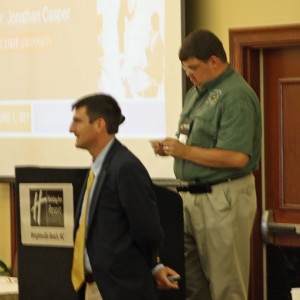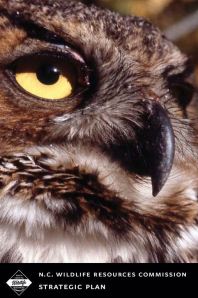PRT 595- Strategic Marketing in Parks, Recreation Tourism & Sport
Link to Artifact: North Carolina Hunter Education Marketing Plan
Submitted February 2010
Author Travis J. Casper
Reflection
I took PRT-595 (later 507) as my first class with the Masters of Parks, Recreation, Tourism, and Sports Management in the spring of 2010. The artifact I chose to represent this class was my marketing plan for the North Carolina Hunter Education Program.
I have already implemented many of the competencies and learning objectives I achieved in this class in my professional career with the North Carolina Wildlife Resources Commission. Many of the aspects of my marketing plan have been implemented in some form. The hunter education program is very conscious of having a very clear target audience with our outreach campaigns. I have been utilizing many of the databases that I was exposed to in this class. The use of SBRnet has been found to be very useful in identifying and understanding target markets and trends as they relate to the hunting public.
The NCWRC’s Home from the Hunt effort has experienced great success as a direct result from tactics discussed in this Strategic Marketing class. Home from the Hunt was one of the elements discussed in the marketing plan. Though this outreach effort was already being implemented before this course, the scope of the campaign has greatly increased after this marketing plan.
Home from the Hunt was the theme of the 2011 International Hunter Education Association’s annual conference held in Wrightsville Beach, NC. Dr. Casper, the professor for PRT-595, was one of the speakers for this conference and even discussed this marketing plan in his presentation to the attending states and nations. Since the conference Georgia and Alabama’s hunter education programs have adopted tactics very similar to NC’s campaigns. Georgia has even requested in writing to use the trademarked name of the campaign.
This course assisted with the tools necessary in better understanding the North Carolina constituency through research and trend analysis so I can better ensure they are provided the opportunities of hunting, fishing, boating and other wildlife-related activities. This course has enabled me to assist in the fulfillment of the agency’s Strategic Plan by addressing:
Goal 2: Expand the constituency base by providing and promoting opportunities for every adult and child, regardless of physical abilities to experience North Carolina’s wildlife resources.
I now am better enabled to develop recruitment, retention, and advertisement strategies for hunter education programming that are researched based. A researched based recruitment and marketing strategy will ensure the outcomes are measurable and easily analyzed. Measurable research will effectively reach the constituency and advise them of the agency’s programs. By better understanding the trends and user patterns I hope to generate opportunities to promote the goals and objectives of the agency’s education programs.




 Posted by tjcasper
Posted by tjcasper 



